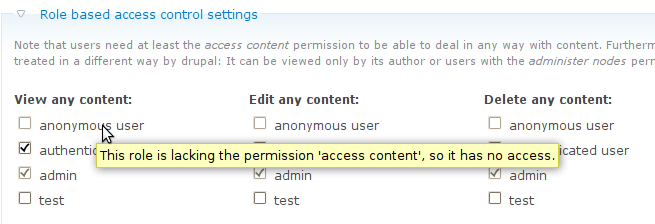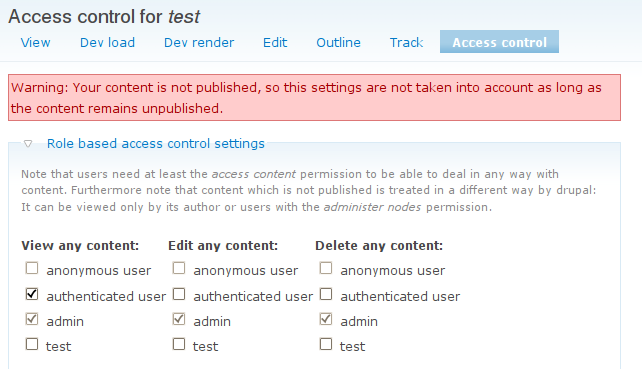Rules 1.0-rc1 is out!
I've just released the first release candidate for rules 1.0. Read more at groups.drupal.org!
Flag is a flexible flagging system that is completely customizable by the administrator. Using this module, the site administrator can provide any number of flags for nodes, comments, or users. Some possibilities include bookmarks, marking important, friends, or flag as offensive. With extensive views integration, you can create custom lists of popular content or keep tabs on important content.But even better the 1.0 (and 1.1) release is shipping with extensive rules integration. So once you have installed both modules you can create flags and use rules to add some behaviour to them, e.g. you can react once a flag is "flagged" or "unflagged" and send mail to the content node's author, unpublish it, change the content's access settings - or whatever you have actions and conditions for! Then the module also provides actions for flagging or unflagging flags, checking the flag count in case of global flags and even to "Trim flags", which allows you to restrict the number of flagged items. This way you could even create simple queues. Of course there also conditions to check whether a flag is flagged and again in case of a global flag you can check the flagging count. Amazing! Also the flag module comes with a bunch of useful settings, so you can configure the flag to have a confirmation form or to just work with an AJAX link. Together with the powerful rules integration one could implement a lot of useful stuff - want a custom link with custom permissions to publish a content node? Just use a flag and an appropriate rule!
 Another example: If you set access control permissions for a certain content node, which is unpublished, drupal won't take your settings into account as it treats unpublished nodes in a special way. So content access warns you:
Another example: If you set access control permissions for a certain content node, which is unpublished, drupal won't take your settings into account as it treats unpublished nodes in a special way. So content access warns you:
 Then if you use the "per content node" settings, it's now possible to reset the permissions of a content node back to the content type defaults.
Apart from that there were a bunch of bug fixes for both drupal 5 and 6 versions. klausi tackled writing simpletests for content access and did an awesome job - now there is bunch of tests for both the drupal 5 and 6 version. This is really important thing to have, as access control is important to work right, right? Right!
Then if you use the "per content node" settings, it's now possible to reset the permissions of a content node back to the content type defaults.
Apart from that there were a bunch of bug fixes for both drupal 5 and 6 versions. klausi tackled writing simpletests for content access and did an awesome job - now there is bunch of tests for both the drupal 5 and 6 version. This is really important thing to have, as access control is important to work right, right? Right!